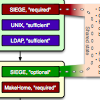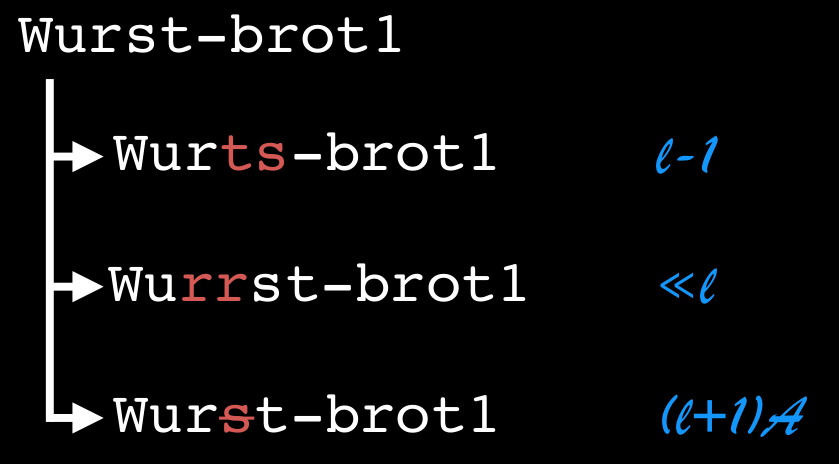
Abstract
Security is one of the main challenges today, complicated significantly by the heterogeneous and open academic networks with thousands of different applications. Botnet-based brute-force password scans are common security threat against the open academic networks. Common defenses are hard to maintain, error-prone and do not reliably discriminate between user error and coordinated attack. In this paper, we present a novel approach, which allows to secure many network services at once. By combining in-app tracking, local and global crowdsourcing, geographic information, and probabilistic user-bot distinction through differential password analysis, our PAM-based detection module can provide higher accuracy and faster blocking of bot- nets. In the future, we aim to make the mechanism even more generic and thus provide a distributed defense against one of the strongest threats against our infrastructure.
BibTeX (Download)
@techreport{waldvogel4siege,
title = {SIEGE: Service-Independent Enterprise-GradE protection against password scans},
author = {Marcel Waldvogel and Jürgen Kollek},
url = {https://netfuture.ch/wp-content/uploads/2014/01/waldvogel14siege.pdf},
year = {2014},
date = {2014-01-17},
urldate = {1000-01-01},
number = {KN-2014-DiSy-001},
institution = {University of Konstanz},
abstract = {Security is one of the main challenges today, complicated significantly by the heterogeneous and open academic networks with thousands of different applications. Botnet-based brute-force password scans are common security threat against the open academic networks. Common defenses are hard to maintain, error-prone and do not reliably discriminate between user error and coordinated attack. In this paper, we present a novel approach, which allows to secure many network services at once. By combining in-app tracking, local and global crowdsourcing, geographic information, and probabilistic user-bot distinction through differential password analysis, our PAM-based detection module can provide higher accuracy and faster blocking of bot- nets. In the future, we aim to make the mechanism even more generic and thus provide a distributed defense against one of the strongest threats against our infrastructure.},
keywords = {Denial of Service, Intrusion Detection, Peer-to-Peer, Security, Trust},
pubstate = {published},
tppubtype = {techreport}
}



